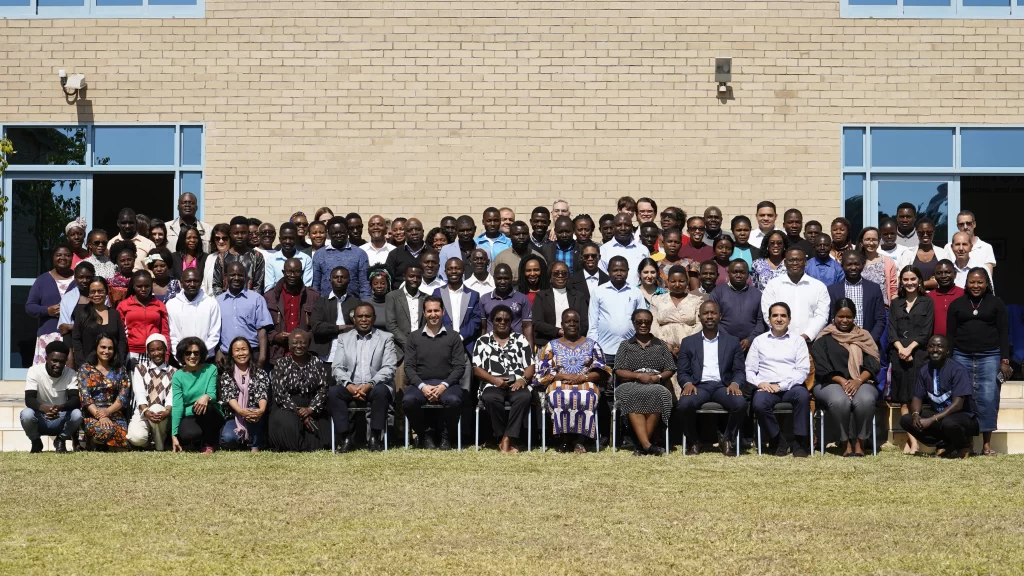
THE OFFICIAL WEBSITE OF THE BAHA'IS OF ZAMBIA

THE OFFICIAL WEBSITE OF THE BAHA'IS OF ZAMBIA
BAHA'I FAITH
The Baha’i Faith, teaches the oneness of God, the unity of humanity, and the essential harmony of religion. The Baha’i teachings address such essential themes as the oneness of God and religion, the oneness of humanity and freedom from prejudice, the inherent nobility of the human being, the progressive revelation of religious truth, the development of spiritual qualities, the integration of worship and service, the harmony between religion and science, the centrality of justice to all human endeavors, the importance of education, and the dynamics of the relationships that are to bind together individuals, communities, and institutions as humanity advances towards its collective maturity.
PRINCIPLES OF THE FAITH
Oneness Of Humanity

Unity of humanity is one of the central teachings of the Baháʼí Faith.[1] The Baháʼí teachings state that since all humans have been created in the image of God, God does not make any distinction between people regardless of race or colour.[2] Thus, because all humans have been created equal, they all require equal opportunities and treatment.[1] Thus the Baháʼí view promotes the unity of humanity, and that people’s vision should be world-embracing and that people should love the whole world rather than just their nation.[2] The teaching, however, does not equate unity with uniformity, but instead the Baháʼí writings advocate for the principle of unity in diversity where the variety in the human race is valued.[3]
Progressive Revelation

God, the Creator of the universe, is all-knowing, all-loving and all-merciful. Just as the physical sun shines on the world, so the light of God is shed upon all Creation. It is impossible for any mortal mind to truly understand the reality of God. However broad or imaginative our concept of God may be, it will always be circumscribed by the limitations of the human mind.
Throughout the ages, God has sent Divine Messengers known as Manifestations of God—among them Abraham, Krishna, Zoroaster, Moses, Buddha, Jesus Christ, Muḥammad, and, in more recent times, the Báb and Bahá’u’lláh—to cultivate humanity’s spiritual, intellectual and moral capacities. Following the coming of a Manifestation of God extraordinary progress occurs in the world. Reaching to the roots of human motivation, His teachings awaken in whole populations capacities to contribute to the advancement of civilization to an extent never before possible.
Today, we find ourselves at the threshold of the coming of age of the human race. Passing through different stages, we have collectively traversed our infancy and childhood. Around the world, human society is being reshaped, and the ultimate trend is clear: we are witnessing nothing less than the organization of human society as a planetary civilization.
“Witness the wondrous evidences of God’s handiwork, and reflect upon its range and character.”
-BAHÁ’U’LLÁH
Universal Education

Strain every nerve to acquire both inner and outer perfections, for the fruit of the human tree hath ever been and will ever be perfections both within and without. It is not desirable that a man be left without knowledge or skills, for he is then but a barren tree. Then, so much as capacity and capability allow, ye needs must deck the tree of being with fruits such as knowledge, wisdom, spiritual perception and eloquent speech.
— From a Tablet, translated from the Persian
The primary, the most urgent requirement is the promotion of education. It is inconceivable that any nation should achieve prosperity and success unless this paramount, this fundamental concern is carried forward.
— The Secret of Divine Civilization
At the outset of every endeavor, it is incumbent to look to the end of it. Of all the arts and sciences, set the children to studying those which will result in advantage to man, will ensure his progress and elevate his rank. Thus the noisome odors of lawlessness will be dispelled, and thus through the high endeavors of the nation’s leaders, all will live cradled, secure and in peace.
— Tablets of Bahá’u’lláh, Lawh-i-Maqsúd
And among the teachings of Bahá’u’lláh is the promotion of education. Every child must be instructed in sciences as much as is necessary. If the parents are able to provide the expenses of this education, it is well, otherwise the community must provide the means for the teaching of that child.
— Selections from the Writings of ‘Abdu’l-Bahá
Exert every effort to acquire the various branches of knowledge and true understanding. Strain every nerve to achieve both material and spiritual accomplishments.
Encourage the children from their earliest years to master every kind of learning, and make them eager to become skilled in every art—the aim being that through the favouring grace of God, the heart of each one may become even as a mirror disclosing the secrets of the universe, penetrating the innermost reality of all things; and that each may earn world-wide fame in all branches of knowledge, science and the arts.
Certainly, certainly, neglect not the education of the children. Rear them to be possessed of spiritual qualities, and be assured of the gifts and favours of the Lord.
— From a Tablet, translated from the Persian
Harmony Between Science and Religion

far from adequate. The harmony of science and religion is one of the fundamental principles of the Bahá’í Faith, which teaches that religion, without science, soon degenerates into superstition and fanaticism, while science without religion becomes merely the instrument of crude materialism. “Religion,” according to the Bahá’í writings, “is the outer expression of the divine reality. Therefore, it must be living, vitalized, moving and progressive.”[1]“Science is the first emanation from God toward man. All created things embody the potentiality of material perfection, but the power of intellectual investigation and scientific acquisition is a higher virtue specialized to man alone. Other beings and organisms are deprived of this potentiality and attainment.”[2]
So far as earthly existence is concerned, many of the greatest achievements of religion have been moral in character. Through its teachings and through the examples of human lives illumined by these teachings, masses of people in all ages and lands have developed the capacity to love, to give generously, to serve others, to forgive, to trust in God, and to sacrifice for the common good. Social structures and institutional systems have been devised that translate these moral advances into the norms of social life on a vast scale. In the final analysis, the spiritual impulses set in motion by the Founders of the world’s religions—the Manifestations of God—have been the chief influence in the civilizing of human character.
‘Abdu’l-Bahá has described science as the “most noble” of all human virtues and “the discoverer of all things”.[3] Science has enabled society to separate fact from conjecture. Further, scientific capabilities—of observing, of measuring, of rigorously testing ideas—have allowed humanity to construct a coherent understanding of the laws and processes governing physical reality, as well as to gain insights into human conduct and the life of society.
Taken together, science and religion provide the fundamental organizing principles by which individuals, communities, and institutions function and evolve.